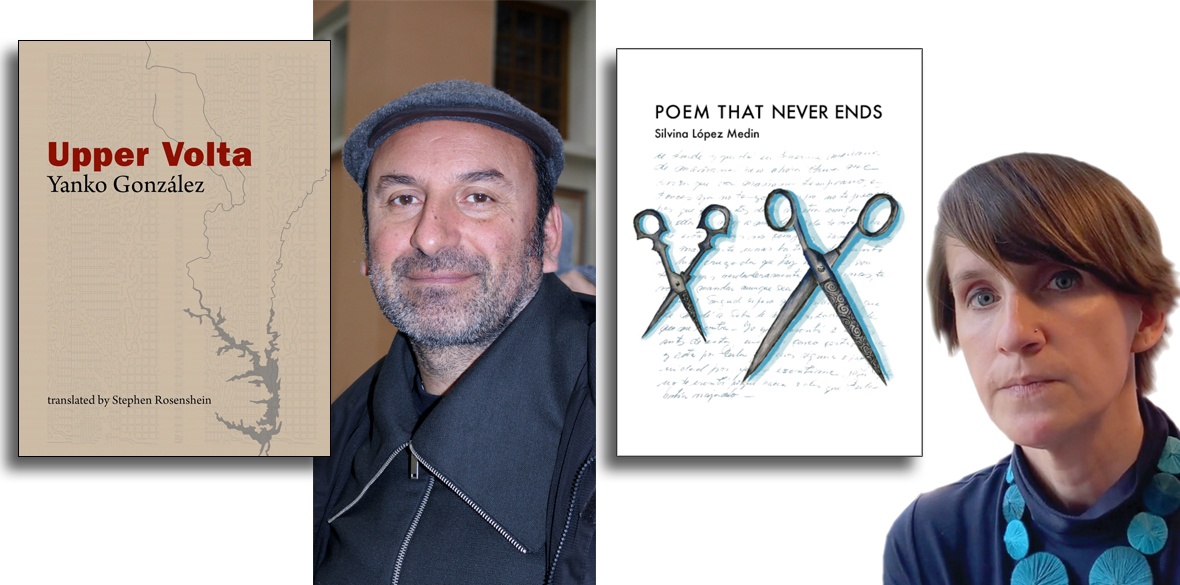This is the last article you can read this month
You can read more article this month
You can read more articles this month
Sorry your limit is up for this month
Reset on:
Please help support the Morning Star by subscribing here
POEM That Never Ends (Essay Press, £12) is award-winning Argentinean poet, translator and playwright Silvina Lopez Medin’s fourth poetry collection.
An illuminating and expansive collection of lyrical fragments stitched together, the book tells the story of the poet’s mother and grandmother, as well as her own. The story unravels as Medin manages to piece together the complex relationships on her maternal side through letters, phone conversations, family photographs, works of art and personal anecdotes.
We learn of her Paraguayan seamstress grandmother, of how she abandoned her young daughter who was only three years of age to her aunts and how that deaf daughter grew up in Argentina.
The poet herself emigrates to New York and tries to find out more about her mother and grandmother through a series of questions: “My mother texts her answers to my questionnaire. Out of 20 questions, she skips 4. I can’t remember, she answers to another 4. For the rest, the most repeated words are: to sew, to clean.”
As a postscript she adds: “no more speaking of this, what’s past is past.” Yet it is precisely the sensitive way in which Medin continuously strives to make sense of the past through poetry, memoir and letter writing, “sewing” her prose and poems together, that makes this an outstanding collection.
It reminds me of the best work by Anne Carson, coincidentally a US poet Medin has translated into Spanish, and Poem That Never Ends is a brave and confident book that brilliantly fuses genres, literary forms and languages — English, Spanish and Guarani — to create a tour de force.
It’s one of the most exciting and innovative books by a Latinx poet I’ve read this year and I can’t recommend it enough.
Chilean poet Yanko Gonzalez is also interested in experimentation and the inventive use of language. His collection Upper Volta (Ugly Duckling Presse, £15), which received the Chilean Critics Award for the best poetry book, was originally published in Spanish in 2007 but only now makes it appearance in English.
It is no surprise that apart from being a highly original poet, Gonzalez is also a professor of social and cultural anthropology. His avant-garde collection explores the limits of language and registers, encompassing terms from historical and literary sources, everyday interactions and colloquial speech.
The book forces the reader to question the sudden shift of meaning in words, its limitations and pitfalls, as well as how the language of globalisation and power might be imposed from above. As he declares in his prose-poem a troublemaker: “to fear. crazy for handbags. of lupita ferrer ubiquity. prepares consomme. snacks to go. overdoes her makeup shouting. overwhelms herself contemplating.
“overstates herself investigating. fails the socialite exam. but licks what she has to lick. looks for a box seat. worse: a social-climber to fear. her tones are high her heels are high. cries out over nothing interrupts for everything. elbows. cuts in line. inserts herself. offers herself to organise to segregate to reappear to restructure to patronise. give her power.”
Meaning in Gonzalez is always changing and morphing into something else and his poetic landscape allows for multiple connections and interesting interpretations. This challenging book demands careful attention and close reading but the rewards are worth the effort.
As the scholar Cristian Gamez Olivares says about the poet: “Gonzalez is here to show us that we don’t speak a language; a language, or many languages, speak for us.”










